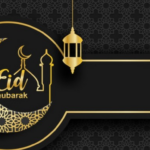As I trudged home from another long day at the office, the fatigue began to settle in. But just as I was about to sink into the comfort of my library, my phone buzzed with a message from a friend. It wasn’t just any message – it was news that my research paper, “Health Benefits of Apple with Special Reference to Kashmiri Apple,” had been accepted for publication in the prestigious International Journal of Novel Research and Development (IJNRD). My heart swelled with pride at the thought of my work being recognized on such a grand stage.
However, as I eagerly scrolled through the contents of the message, my excitement gave way to a sinking feeling of discomfort. My friend had attached a certificate issued by the editorial board of IJNRD, but there, in bold letters, was a glaring mistake – my name. Instead of “Shakeel Bin Abdul Ali,” I found myself identified as “Shakeel ibn ali“. The discrepancy hit me like a ton of bricks, casting a shadow over what should have been a moment of triumph.
In that moment, I couldn’t help but reflect on the words of Dale Carnegie in his International best seller, “How to Win Friends and Influence People“, who famously said that the sweetest sound to any person’s ears is the sound of their own name. Our names are more than just labels; they are reflections of our identity, our heritage, and our very being. To have mine distorted in such a manner felt like a disservice not only to me but to the generations of my family whose legacy I carry with me.
The incident served as a stark reminder of the importance of names in our lives. Names are not just words; they carry with them the stories of our lineage, the struggles of our ancestors, and the aspirations of our parents. They are symbols of our individuality, our uniqueness, and our place in the world. To have mine misrepresented on a certificate of recognition was not just an oversight; it was a failure to acknowledge my identity and the journey that brought me to this point.
Imagine this: you’ve poured your heart and soul into a research paper, meticulously crafting each sentence, each argument, and finally, after countless revisions and late nights, your work is accepted for publication in a renowned journal. It’s a moment of triumph, a validation of your expertise and dedication. But then, as you bask in the glow of your achievement, a jarring realization dawns upon you – your name, your identity, the very essence of who you are, has been misrepresented.
I knew I had to address the issue, so I reached out to my friend, asking if they could contact the journal and request a correction. But even as I sent the message, doubts nagged at me. Would the journal be willing to make the change? Would they even acknowledge my request? The uncertainty weighed heavily on my mind, threatening to overshadow the joy of seeing my work in print.
As I waited anxiously for a response, I couldn’t help but think about the broader implications of the incident. In a world that prides itself on diversity and inclusivity, the misrepresentation of names is more than just a personal grievance – it is a symptom of a larger issue. It speaks to a lack of attention to detail, a disregard for individual identities, and a failure to recognize the importance of names in our lives.
Despite my apprehensions, my friend assured me that they would reach out to the journal and request a correction. And to my relief, they did – though there was no guarantee that the journal would comply. In the end, it was a waiting game, filled with uncertainty and apprehension.
In the midst of it all, I couldn’t help but reflect on the power of a name – the power to affirm, to acknowledge, and to honour our individual identities. As I awaited the outcome of my request, I vowed to advocate for the importance of names in all aspects of our lives. Because behind every name lies a story – a story that deserves to be told, respected, and celebrated.
(Author is a regular columnist and can be reached at: [email protected])








